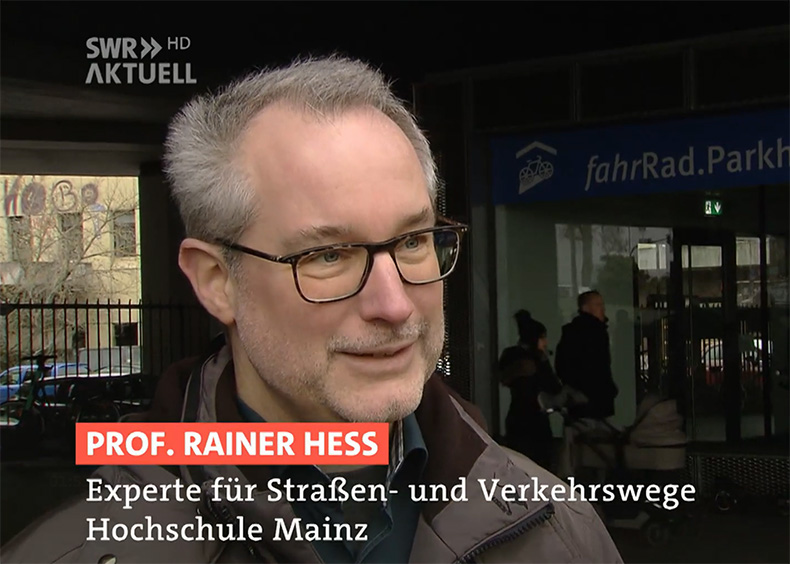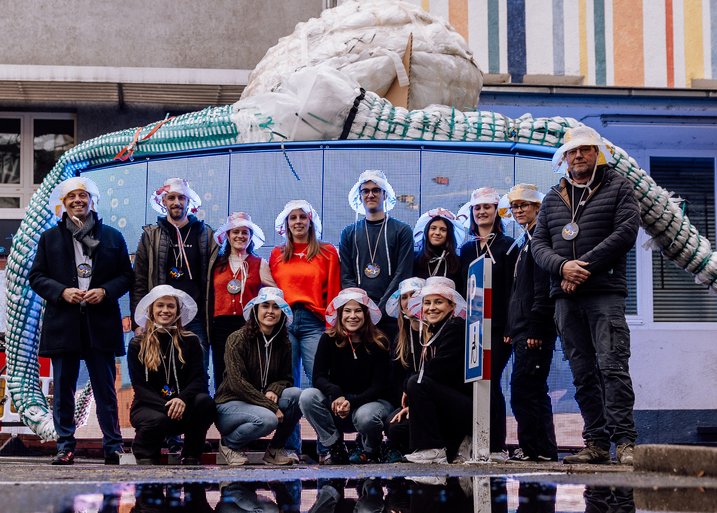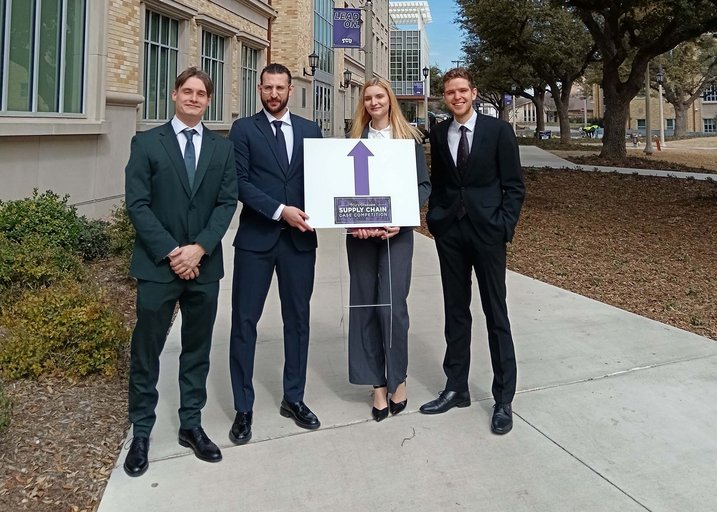In a recent news report, SWR reported on the new pilot version of the AllRad project on January 28, 2023. The story focuses on the guide Dealing with abandoned bikes and junk bikes, which project head Prof. Dr.-Ing. Rainer Hess then presents in a studio interview.
It is estimated that unusable bicycles and abandoned bicycles block about 15% of the public parking capacity in Munich. In Münster there are up to 50,000 such bikes, according to the city’s Public Order Office. Bicycles that are not in working order or no longer in use occupy the limited parking spaces available, reducing both the functionality and quality of the infrastructure for everyday traffic. Along with expansion, it is primarily the quality of the usable infrastructure that is decisive for bicycle use by the populace.
To counteract this and to increase the proportion of people using bicycles, Mainz University of Applied Sciences has now developed the guide Dealing with abandoned bikes and junk bikes as part of the pilot version of the AllRad project. Together with representatives from five municipalities, leading municipal associations and the Infostelle Fahrradparken am Bahnhof (Information Center for Bicycle Parking at Train Stations) of Deutsche Bahn, the team from Mainz University of Applied Sciences has compiled in this guide important information and tried-and-tested procedures for the nationwide removal of abandoned bikes and unusable bikes.
“The guide consolidates central information on dealing with unusable bikes and abandoned bikes for nationwide implementation. This conserves scarce municipal resources that can benefit cyclists elsewhere,” said project head Prof. Dr.-Ing. Rainer Hess, who holds the Professorship of Road and Traffic Engineering in the Department of Civil Engineering at Mainz University of Applied Sciences.
This guide is the first to compile experiences and procedures for dealing with abandoned bicycles and junk bicycles across the entire country. On the basis of the options for action presented in it, municipalities and those responsible for private parking facilities are enabled to draw up a modular approach to dealing with abandoned bicycles and junk bicycles and/or to optimize the approach already in practice. Based on current legislation, criteria for identifying bikes to be impounded are described, as well as all further necessary steps – from documentation and storage to recycling options. These include auctioning off the bikes, recycling by scrapping or the option of donating the bikes to a non-profit organization.
AllRad research project
Increasing the attractiveness of cycling by improving the operational maintenance of bike path networks is the focus of the AllRad research project at Mainz University of Applied Sciences, which is receiving funding from the National Cycling Plan. The project will be completed in March 2023. The total volume of the project is 109,810 Euro, of which the Federal Ministry for Digital and Transport is funding 80%, with the remainder being borne by Mainz University of Applied Sciences from its own funds.
The aim of the project is to increase the use of bicycles in everyday life improving bicycle path maintenance through winter services, cleaning and vegetation maintenance, as well as optimized coordination of the trades involved. This is to be achieved by improving bicycle path maintenance through winter services, cleaning and green maintenance as well as optimized coordination of the work to be carried out. This not only increases the convenience, but also the safety of bicycle use.
By taking local differences in the three cities of Mainz, Munich, and Münster into account, a generally deployable action concept is to be developed, which is intended to improve the condition of cycle paths and increase cycling in other cities in the future.




